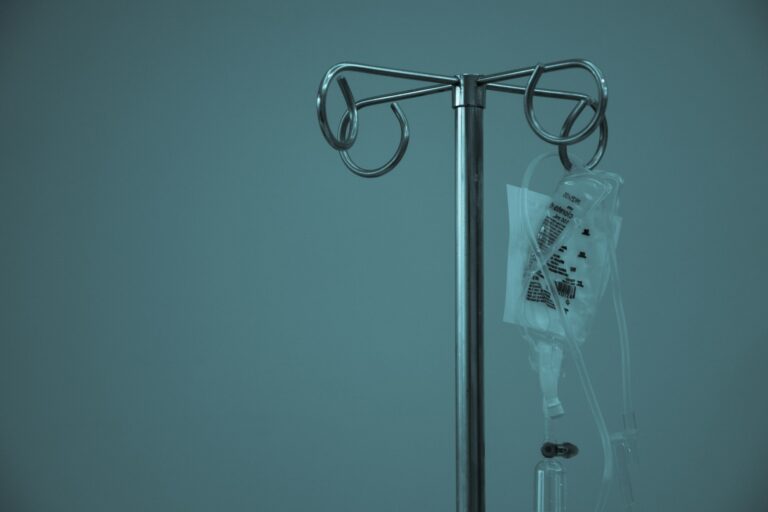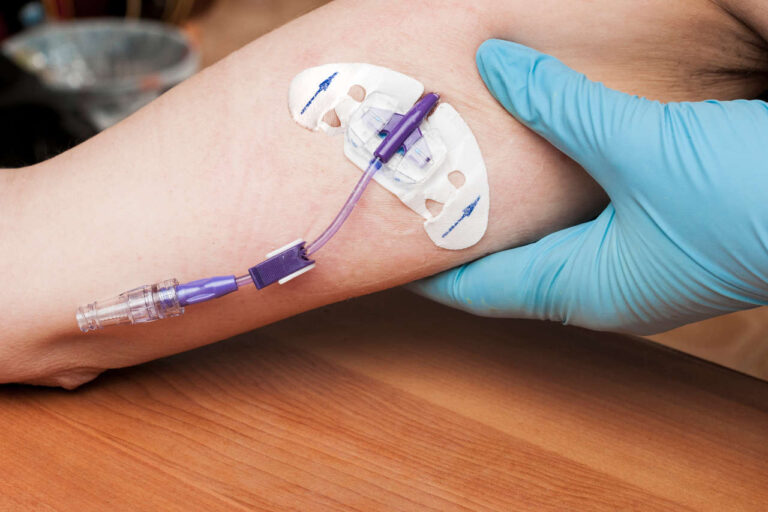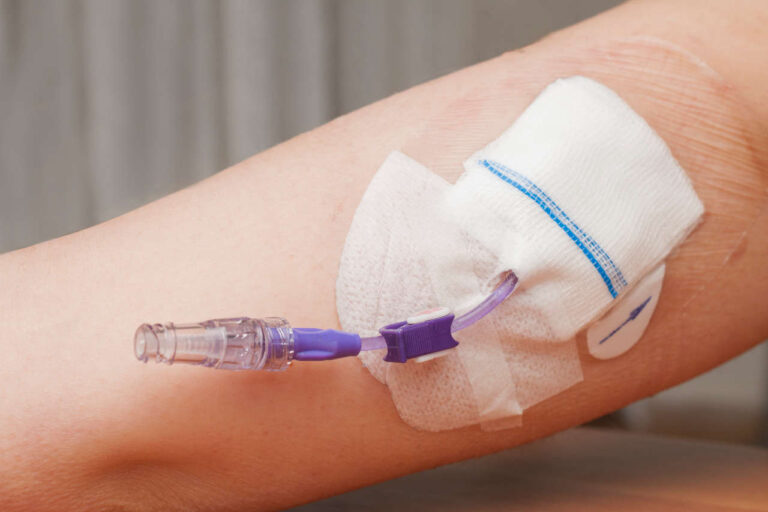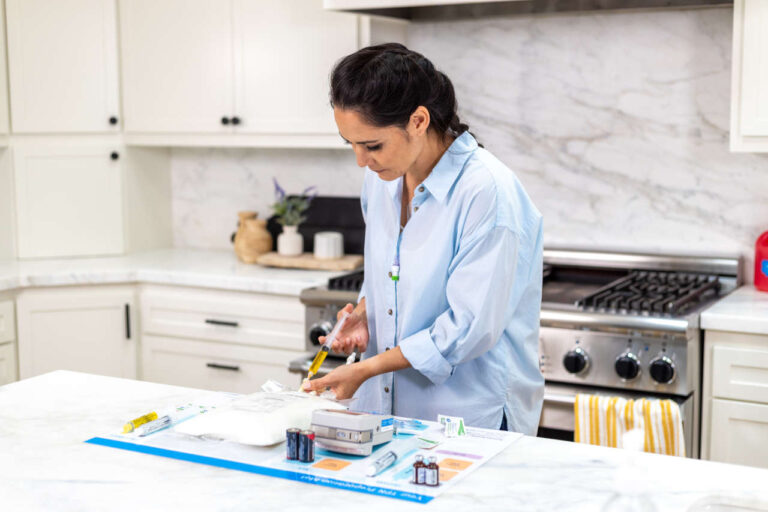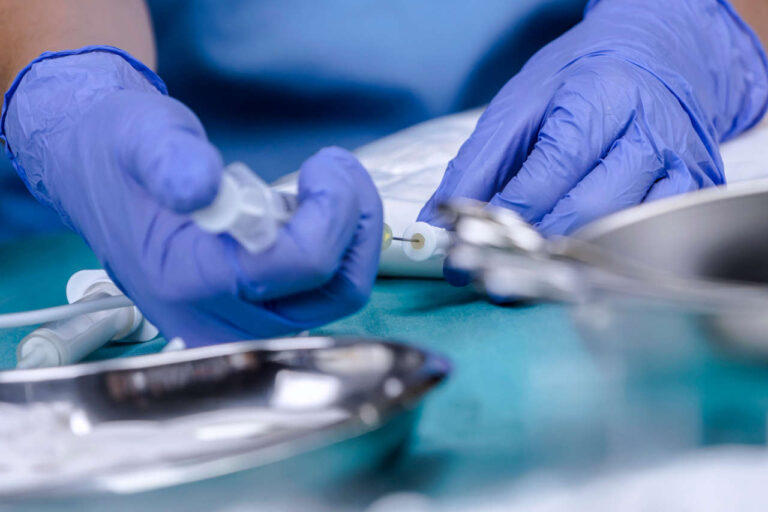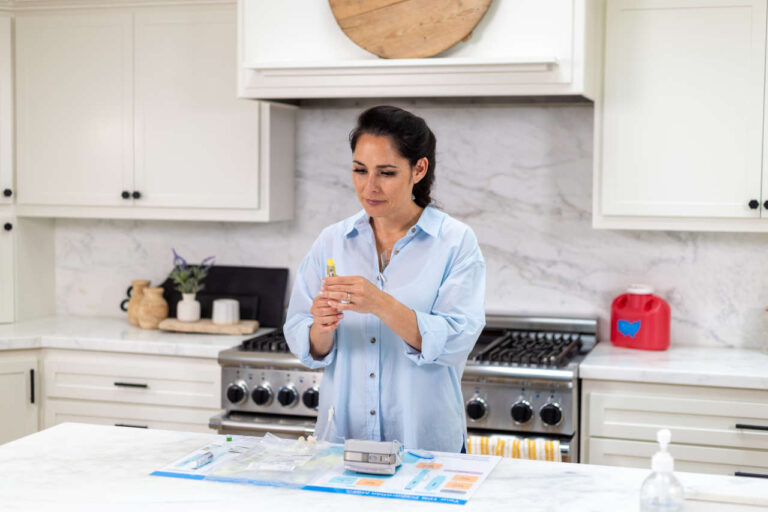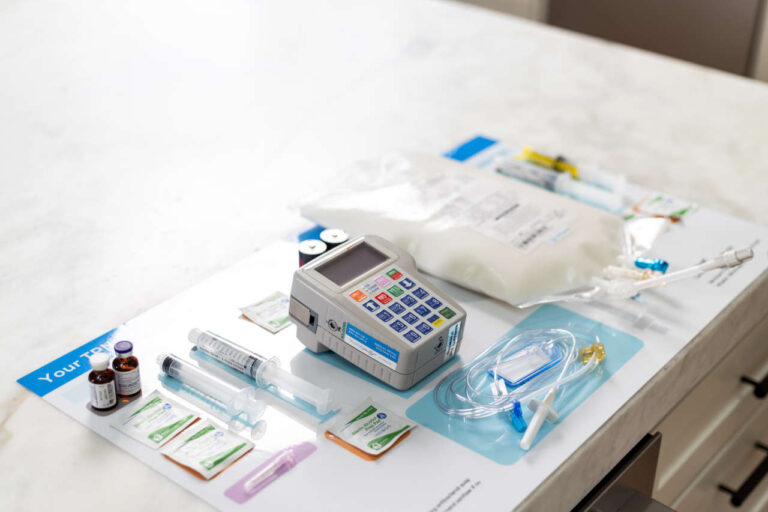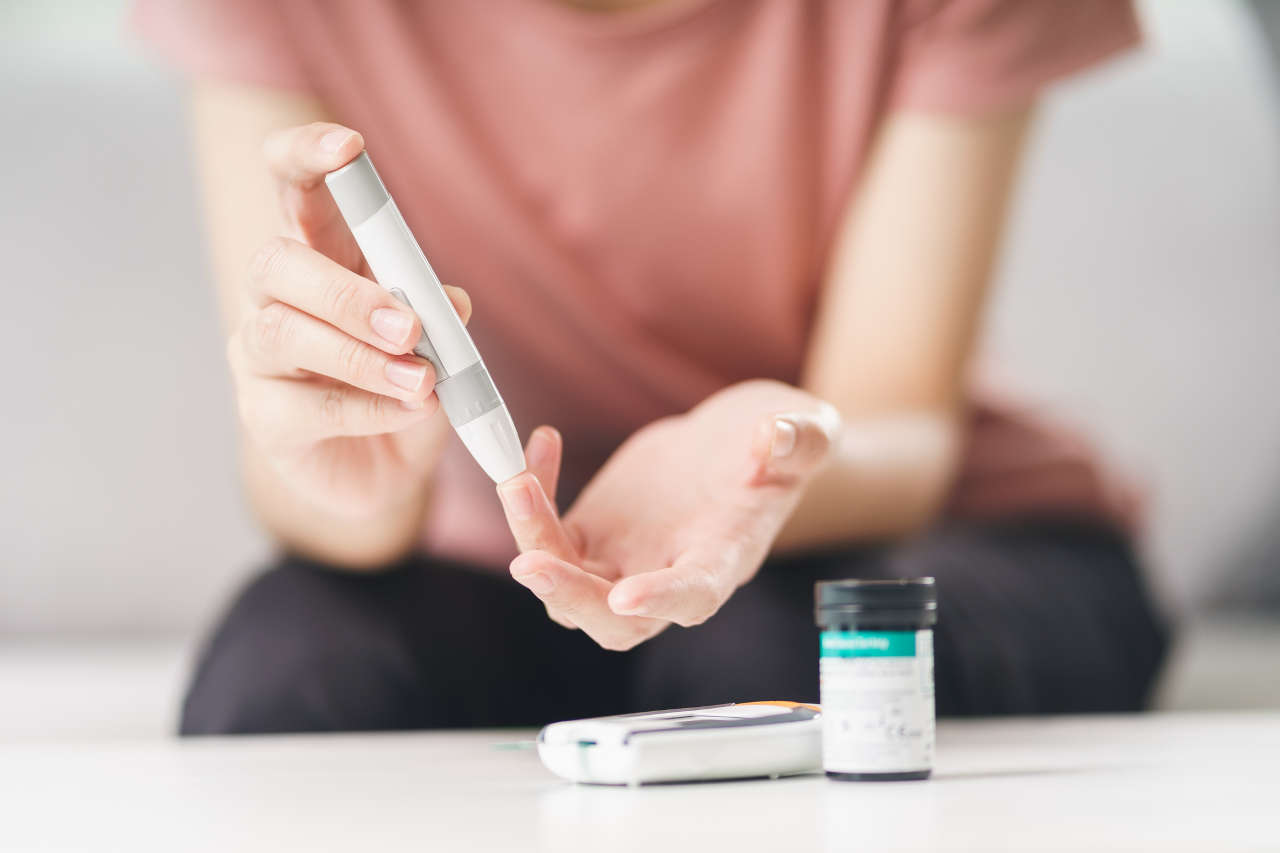
Total parental nutrition, abbreviated as TPN, is a medical therapy often prescribed to individuals who suffer from poor nutrition or are not able to consume food or drink by mouth due to various medical conditions. Among other TPN-associated concerns, the link between TPN and diabetes is particularly complex and raises questions about their potential connection.
IV Fluids Fully in Stock
Reliable supply for uninterrupted careThough TPN solutions can significantly influence blood glucose levels, it does not mean that they can actually cause diabetes. However, for individuals already dealing with diabetes, TPN can overwhelm their blood glucose level.
This article discusses the connection between TPN and diabetes, whether TPN causes diabetes, and how diabetic patients can manage their glucose levels while receiving TPN therapy.
Basics of Total Parenteral Nutrition (TPN)

Total Parenteral Nutrition (TPN) is used to deliver essential nutrients directly into the patient’s bloodstream through an intravenous (IV) route. Since this approach bypasses the digestive system entirely, it becomes a critical option for patients who cannot effectively absorb nutrients through normal eating. Patients with severe gastrointestinal disorders, bowel obstruction, malabsorption issues, or who require bowel rest after extensive surgeries get their nutritional requirements via TPN.
The TPN solution consists of a wide range of vital nutrients, including macronutrients such as carbohydrates, proteins, and fats, as well as essential micronutrients like electrolytes, vitamins, and minerals.
Carbohydrates (dextrose), in particular, can significantly impact blood sugar levels. When carbohydrates are ingested, your body breaks them down into small sugar (glucose) molecules, which then enter the bloodstream and raise blood sugar levels.
Generally, in healthy individuals, when blood sugar levels rise, the pancreas releases insulin, a hormone that causes glucose absorption into cells to stabilize blood sugar levels. However, in people with diabetes, this process doesn’t work properly.
TPN’s Connection With Diabetes
Diabetes is a long-term metabolic disorder characterized by high blood glucose due to a disruption in insulin production, impaired insulin action, or both. People with diabetes may experience complications due to their body’s inability to regulate glucose properly.
When a diabetic patient requires TPN, the ingredients of the TPN solution become an important consideration. The carbohydrate content of the TPN solution needs to be carefully adjusted to match the patient’s insulin regimen.
If the carbohydrate intake from the TPN solution is not managed correctly, it can lead to sudden changes in blood sugar levels, which can lead to severe and life-threatening hyperglycemia (high blood sugar) or hypoglycemia (low blood sugar).
Does TPN Cause Diabetes?
The question of whether TPN causes diabetes is a topic that has garnered attention in medical discussions. However, it’s important to clarify the difference between causing diabetes and affecting blood sugar levels.
TPN by itself does not cause diabetes. Diabetes is caused by several underlying factors such as genetics, lifestyle, diet, and autoimmune responses that affect insulin production or use. TPN, on the other hand, influences blood sugar levels due to the nutrients it delivers directly into the bloodstream.
It’s important to note that while TPN doesn’t cause diabetes, prolonged exposure to high levels of sugar in the TPN solution can lead to a condition known as TPN-associated hyperglycemia. This is particularly important for patients who are not diabetic before receiving TPN. This excessive glucose infusion challenges the body’s insulin regulation and potentially triggers temporary hyperglycemia.
On the other hand, diabetic patients undergoing TPN may find it difficult to manage their blood sugar levels due to the infusion of glucose-rich nutrients like TPN. Hence, consistent monitoring and adjustments to insulin doses and administration are typically recommended by healthcare providers to maintain stable glycemic control.
Get Financial Assistance for TPN
How To Manage Diabetes in TPN Patients
For diabetic patients receiving TPN, managing blood sugar levels requires a collaborative effort of healthcare professionals, including endocrinologists, dietitians, nurses, and pharmacists. The key strategies for managing diabetes in TPN patients include:
Individualized TPN Formulation
The amount of each ingredient in TPN solutions is customized and tailored to each patient’s unique nutritional needs and existing medical conditions, including diabetes. This customization helps balance nutrient intake and maintain blood sugar levels within the target range.
Frequent Blood Glucose Monitoring
Regular monitoring of blood sugar levels can help healthcare providers make real-time adjustments to the TPN infusion rate and insulin regimen.
Insulin Management
Insulin administration is adjusted to accommodate the glucose load from the TPN solution. Some patients may require a continuous insulin infusion to match the glucose infusion rate.
Nutritional Support
Dietitians play a vital role in ensuring that the TPN solution meets the patient’s nutritional requirements while aligning with their diabetic management plan.
Education and Training
Patients and caregivers can receive education on monitoring blood sugar levels, recognizing signs of hyperglycemia or hypoglycemia, and understanding the basics of TPN. This training can help them prevent future complications.
Concluzie
The link between total parenteral nutrition (TPN) and diabetes lies in the complex connection between the nutrients in the TPN solution and your body’s ability to regulate blood sugar levels. TPN does not cause diabetes, but it can significantly influence blood sugar levels in diabetic and non-diabetic patients. Effective management involving personalized TPN formulations, regular blood glucose monitoring, insulin management, and collaborative healthcare efforts can prevent complications associated with TPN.
Întrebări frecvente
How does TPN affect blood sugar levels in diabetic patients?
The composition of the TPN solution, particularly its carbohydrate (dextrose) content, can influence blood sugar levels. Diabetic patients must carefully monitor their blood sugar and adjust their insulin doses to match the TPN solution’s sugar intake to maintain stable blood sugar control.
Vorbește cu un specialist
Despre asistența pentru coplatăCan TPN-associated hyperglycemia be a concern for non-diabetic patients?
Yes, TPN-associated hyperglycemia can affect non-diabetic patients as well. Hyperglycemia occurs as a result of excessive glucose infusion from the TPN solution. This condition can disturb the body’s insulin regulation and lead to abnormally high blood sugar levels. The TPN-associated hyperglycemia can be reversed by regularly monitoring blood sugar and insulin adjustments.
What are the potential risks associated with poorly managed diabetes in TPN patients?
Poorly managed diabetes in TPN patients can lead to hyperglycemia, hypoglycemia, infections, and delayed wound healing. Monitoring blood sugar levels and adjusting insulin doses can help to avoid these risks.
REFERINȚE:
- Lee, H., Koh, S. O., & Park, M. S. (2011). Higher dextrose delivery via TPN related to the development of hyperglycemia in non-diabetic critically ill patients. Nutrition Research and Practice, 5(5), 450-454. https://doi.org/10.4162/nrp.2011.5.5.450
- Gosmanov, A. R., & Umpierrez, G. E. (2013). Management of Hyperglycemia During Enteral and Parenteral Nutrition Therapy. Current Diabetes Reports, 13(1), 155. https://doi.org/10.1007/s11892-012-0335-y
- Olveira, G., Abuín, J., López, R., Herranz, S., García-Almeida, J. M., García-Malpartida, K., Ferrer, M., Cancer, E., Luengo-Pérez, L. M., Álvarez, J., Aragón, C., Ocón, M. J., García-Manzanares, Á., Bretón, I., Serrano-Aguayo, P., Pérez-Ferre, N., López-Gómez, J. J., Olivares, J., Arraiza, C., . . . Tapia, M. J. (2020). Regular insulin added to total parenteral nutrition vs subcutaneous glargine in non-critically ill diabetic inpatients, a multicenter randomized clinical trial: INSUPAR trial. Clinical Nutrition, 39(2), 388-394. https://doi.org/10.1016/j.clnu.2019.02.036
- Garg, R., Arunachalam, A., Bermudez, L., & Ramirez, M. (2020). 1042-P: Insulin Requirement during Total Parenteral Nutrition in Patients with Diabetes Mellitus. Diabetes, 69(Supplement 1), 1042-P. https://doi.org/10.2337/db20-1042-p





